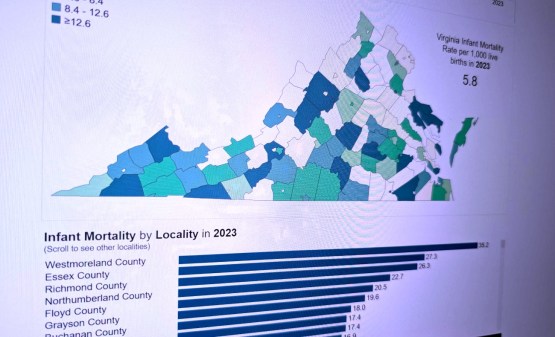Virginia weighs results of IT infrastructure audit

Virginia should move away from a single IT infrastructure provider and “adopt a multi-supplier model,” according to the findings of an independent audit.
In a final report released Monday, the IT advisory firm Integris Applied recommends that the Virginia Information Technology Agency, known as VITA, begin disentangling its services from a comprehensive infrastructure agreement the state signed with Northrop Grumman in 2006. That deal is set to expire on June 30, 2019, and with no additional optional extensions left to exercise, the firm is laying out steps for the state to take control over its IT.
The audit, which the firm has worked to compile since February, includes a detailed plan for Virginia to move away from the old agreement, with preliminary efforts set to start as soon as 2016.
Overall, the firm’s researchers charge that “the current delivery platform and the contract that supports it cannot adapt to changing enterprise and agency needs.” Chief Information Officer Nelson Moe said that conclusion mirrors his own perspective, and initial briefings on the report suggest that it largely conforms with what he’s learned about the state’s IT since taking the reins as CIO in June.
“The infrastructure agreement did a lot of good things for the commonwealth, but, at the end of the day, we need to look at something different,” Moe told StateScoop. “The conditions of this contract were originally written three years before the first iPhone was introduced.”
In the report, the firm’s researchers write that their interviews with agency heads revealed that many feel the current infrastructure arrangement promotes a “lack of empathy for agency business operations,” the “existence of operational silos” and “a lack of control and transparency around cost.”
“I’ve been here almost six months, and I’ve gotten a lot of good feedback from the agency heads about how we can be more responsive to agency needs, so I think, if you connect the dots, you can see how they came to the same conclusion,” Moe said.
Accordingly, the firm writes that “changes to the commonwealth’s infrastructure services delivery platform are necessary to improve services, pricing and flexibility” and VITA should take the lead in implementing those changes.
The report calls for the state to move to a multisourced model of doing business over the next few years, which would allow agencies to have more choice in finding vendors that can offer tools that best fit their needs. That process would lead to an influx of varied technologies into the state’s systems, so the firm also recommends that the state hire another company to act as a “services integrator” to help make this process run more smoothly.
To test the feasibility of these suggestions, the firm also worked with the state to an issue a request for information to vendors to help understand what kind of demand would exist should Virginia proceed with this change. Moe said the state heard from 29 companies, a response that makes him “optimistic that we’ll get a robust response when and if we get a chance to send these out in the field.”
The report suggests that the state start the process of finding an integrator, as well as procuring some pieces of its new infrastructure, as early as next year. Then VITA will be able to spend the next two years transitioning to its new service providers and refining its model for managing this new system.
For the most part, Moe said that timeline is a realistic one — “it’s just a matter of getting our stakeholders in line as we move forward.” But before the state can kick off that process in earnest, Moe said he’ll spend the next month soliciting comments on the report’s findings. Then, he’ll develop his own recommendations to the send to the governor for a final say on the project.
“The prism that I will look at this report through is ‘Does it provide the most flexibility and ability to adapt, not only from a cost effective approach and technology approach, but will it provide future generations of commonwealth employees and citizens a digital government?’” Moe said.






